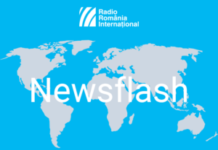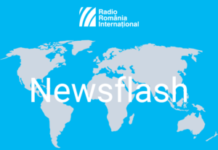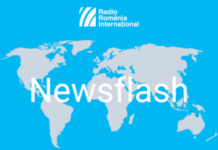President Klaus Iohannis in video conference with EU and NATO allied leaders
Romanian head of state Klaus Iohannis was invited by his American counterpart Joe Biden to a new round of consultations via video conference with allied leaders from the EU and NATO, along partner states, in the context of continued illegal military aggression by Russia against Ukraine. The parties analyzed the strategy to support Ukraine and response measures from the international community in order to counteract Russia’s actions, focused on extended sanctions. The participants reiterated their determination to provide economic, humanitarian, and security support for Ukraine. President Iohannis spoke about the importance of maintaining allied and transatlantic unity, and firmly condemned the crimes committed by Russian troops against civilians. At the same time, the head of state emphasized the impact that this crisis has on the security situation on the eastern flank of the alliance, especially in the Black Sea area. Klaus Iohannis also referred to the need to create a NATO rapid response task force on Romania’s territory. At the same time, he called for decisive and coordinated action to wean away from energy dependence on Russia, and also underlined that the present sanctions regime has proven ineffectual.
Romanian – American talks
Romanian Foreign Minister Bogdan Aurescu and US Secretary of State Antony Blinken had a telephone conference on Monday on the consequences of Russia’s military aggression against Ukraine, and on ways of adequate situational management and response. Bogdan Aurescu submitted his government’s evaluation of the security developments on NATO’s eastern flank and in the Black Sea area. He detailed the complex action taken by the Romanian authorities in support of Ukraine in the political, logistical, and humanitarian areas. The head of Romanian diplomacy also underlined the importance of speedily acting on the decisions made at the extraordinary NATO meeting of March 24, especially in creating sooner the special task force in Romania, as a first step in balancing and consolidating NATO presence on the eastern flank. In turn, Secretary Blinken expressed gratitude on behalf of his country for the regional role taken on by Bucharest, and for its support for Ukraine and vulnerable partners in the region, including Moldova. The American official said that Washington was committed to protecting the territories of Romania and all its allies, especially first line countries, as Romania now stands. Also on Monday, Defense Minister Vasile Dincu and his American counterpart Lloyd Austin spoke on the telephone about the evolution of the security situation in the Black Sea. Minister Dincu thanked the United States for its commitment and consistent contribution to eastern flank security for NATO. Two concrete examples of the solidity of the transatlantic alliance are the repositioning of Stryker units and of F-16 and F-18 air wings.
The offshore bill allowing for natural gas extraction in the Black Sea is under debate in the Senate
The offshore bill allowing for natural gas extraction in the Black Sea was on Tuesday on the agenda of the Permanent Bureau of the Senate in Bucharest. This bill gets emergency status for debate, after being endorsed by expert institutions. It is estimated that the Senate, as a first debate forum, would greenlight it in May. PM Nicolae Ciuca said that the offshore law will ensure stability and legal predictability to relevant businesses in terms of independence from gas supplies from the Russian Federation. The gas volume attributed to the Romanian sectors in the Black Sea is estimated at 200 billion cubic meters, with the largest part in the Neptune Deep perimeter, operated by OMV Petrom and ExxonMobil.










